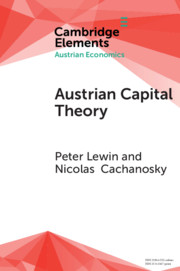Refine search
Actions for selected content:
7 results
11 - Money and Freedom
-
- Book:
- Money In Crisis
- Published online:
- 15 July 2025
- Print publication:
- 12 June 2025, pp 289-303
-
- Chapter
- Export citation
8 - The Promise of Capitalism
-
- Book:
- In Search of a Moral Foundation for Capitalism
- Published online:
- 23 November 2023
- Print publication:
- 07 December 2023, pp 182-216
-
- Chapter
- Export citation
3 - Religion as a Moral Foundation
-
- Book:
- In Search of a Moral Foundation for Capitalism
- Published online:
- 23 November 2023
- Print publication:
- 07 December 2023, pp 43-67
-
- Chapter
- Export citation
4 - The Great Escape
- from Part 1 - Beyond Americanisation (1937–1947)
-
- Book:
- The Origins of European Integration
- Published online:
- 13 December 2023
- Print publication:
- 30 November 2023, pp 102-130
-
- Chapter
- Export citation
8 - The Myth of the Invisible Hand: Neo-liberal Streams
- from Part III - The Disgregation of the Mainstream
-
- Book:
- The Age of Fragmentation
- Published online:
- 25 November 2019
- Print publication:
- 05 December 2019, pp 177-217
-
- Chapter
- Export citation
Part III - The Disgregation of the Mainstream
-
- Book:
- The Age of Fragmentation
- Published online:
- 25 November 2019
- Print publication:
- 05 December 2019, pp 111-244
-
- Chapter
- Export citation

Austrian Capital Theory
- A Modern Survey of the Essentials
-
- Published online:
- 13 January 2019
- Print publication:
- 10 January 2019
-
- Element
- Export citation
